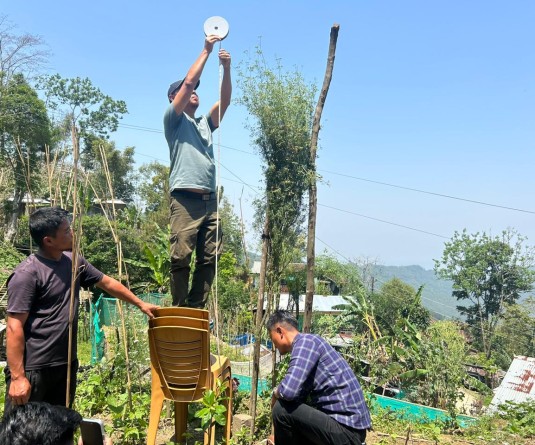
DIMAPUR, APRIL 4 (MExN): The All Nagaland Private Schools’ Association (ANPSA) has endorsed the National Independent Private (Performing) Schools Alliance’s (NISA) ‘Save Education Campaign’ (Shiksha Bachao Abhiyan) to be held on April 7, 2018 in New Delhi to sensitise the Government of India and the Prime Minister regarding the current problems faced by private schools all over the country.
NISA is an alliance of Independent Budget Private (Performing) Schools. About sixty thousand schools all over the country are affiliated to NISA, including ANPSA. NISA will be presenting a charter of demands to the Prime Minister on April 7, 2018 in New Delhi for Saving Education in our country, a press release issued by ANSPA president, Bithungo Kikon and general secretary, Nini Sekhose stated.
Fund students, not schools
Among others, NISA is demanding that the government funding in education should take a new approach in which unit of funds allocation and spending is a “Child” centered and not “Schools” centered approach. It demands that each parent be empowered with Rs. 2500/- per child per month to meet the schooling expenses of their children.
It also stated that funding of students should be done under Direct Benefit Transfer system where the funding should not be routed through institutions like the Education Department or schools. With this DBT funding, parents are empowered to choose the school of their choice.
Currently, government while making budgets calculates costs per child, but while allocating and spending budgets, funds are routed through institutions such as Education Department, schools. If government funding in education takes this new approach, in addition to bringing more accountability and transparency in expenditure, it will also engender healthy competition between different schools to attract and retain more students, NISA stated. Net outcome of the competition is improved quality of education, it added.
Autonomy to schools
The Alliance also pointed out that there is constant threat to autonomy of schools in terms of timing, fees, teacher salaries, curriculum, infrastructure facilities etc. One of the main problems with lack of autonomy is lack of motivation, restricted scope for innovation and limited incentives for teachers and principals to perform, it said.
NISA asserted it is important that schools retain greater decision making powers and control over resources such as school finances to be able to innovate and improve their schools and classrooms respectively.
The all important decision to detain or not detain a child, it said, should also be left to the schools based on various factors and not mandated by the government.
Governance model
Currently, government plays the role of regulator, financier and deliverer or provider of education all at the same time. Some of the key challenges with this structure are lack of independent and neutral monitoring of government and private schools, favorable treatment to the government schools, lack of accountability in financing education, according to NISA. It is important that these three roles are separated and handled by separate entities, it stated.




